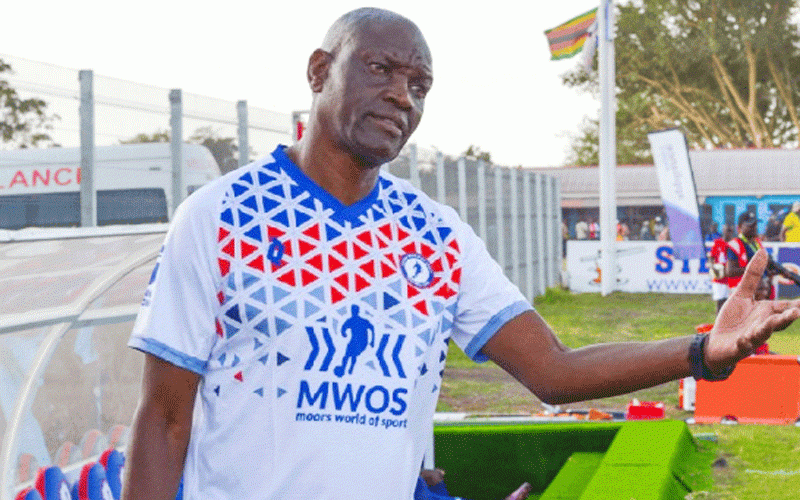
insidesport:with MICHAEL KARIATI
One of the reasons why Zimbabwe’s Warriors finished rock-bottom at the 2021 Africa Nations Championships was that the players were not match-fit, most of them having last kicked a ball in December 2019.
Chances are that football will not return to Zimbabwe any time soon or maybe not this year and what we need to do is to find ways of keeping our players active and earning a decent life.
It is not a secret that players have been the hardest hit by this lengthy lay-off as some of them have not been paid for some time, while the careers of some is in danger of ending prematurely due to this inactivity.
The fact remains that clubs will survive these trying times and will also be able to rise to the forces of old, but what happens to the players who need regular football to keep in shape and regular income to survive?
One football analyst jokingly said most of Zimbabwe’s footballers would — in football terms — be “finished” when domestic football finally returns to the Zimbabwe soccer fields.
Who can fault his line of thinking when players have gone for one year and two months without kicking a ball and there are no signs that even a short knockout tournament would take centre stage?
What is disheartening is the fact that the government lifted the ban on sporting activities in August 2020, and by January 1, 2021, those running football had failed to organise even a single tournament.
- Chamisa under fire over US$120K donation
- Mavhunga puts DeMbare into Chibuku quarterfinals
- Pension funds bet on Cabora Bassa oilfields
- Councils defy govt fire tender directive
Keep Reading
The fact is that the immediate future of Zimbabwean football does not look all that bright and clubs cannot wait for Zifa or the PSL (Premier Soccer League) to chart their way forward or else they will wait forever.
What they need to do is to keep the Zimbabwean football fire burning by devising methods of keeping themselves afloat and the players active during this period.
One of the suggestions raised was for the Zimbabwean clubs to send out their players on loan to as many surrounding foreign clubs as possible in club-to-club agreements.
This arrangement would see Zimbabwean clubs receiving loan-on-fees while the players get paid by the foreign clubs for their services during that loan period instead of sitting at home and doing nothing.
A point to note is that the player would not be lost to Zimbabwean football or the Zimbabwean club, but would return home when football also returns home.
Although some laughed off this suggestion as absurd and ridiculous, the situation in Zimbabwe has become so desperate that it does not matter whether the player goes to Namibia, Swaziland, Mozambique, Malawi, Lesotho or Botswana, but what is important is for him to play football and get paid for it. After all, some of our players have been going to these countries on their own to play football and earning a living.
There are other options in already established player markets in South Africa, Tanzania and Zambia, which the Zimbabwean clubs can also exploit to their benefit and to that of their players.
Surely, the random export of players might not be the best option for Zimbabwean football, but it can help in one way or another to keep our clubs afloat while at the same offer employment to our players.
Zimbabwean football might be out-of-action, but the power of its existence cannot be over-emphasised. We hope that one day it will return to the field and confirm whether FC Platinum have surely overtaken Dynamos, Highlanders and Caps United as the dominant force of the Zimbabwean game.
In the background, however, one can hear the sounds,Dembare, Dembare, MaDeMbare, but sadly, times have changed for the Glamour Boys.
For your views, comments, and suggestions, email: [email protected] or WhatsApp on 0773 266 779.











